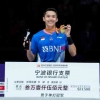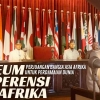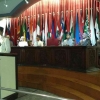Iran's multi-track strategy
The strategic alliance between Russia and Iran is practically a historical inevitability. This is considering the previous Soviet Union's military assistance to Iran through North Korea, following the US/European blockade. Putin and Raeisi are taking it to the next level. Moscow and Tehran are developing a joint strategy to overcome Western collective sanctions. However, Iran has an absolutely remarkable record of breaking apart "maximum pressure" variants. Also, it is now associated with the strategic nuclear umbrella offered by the "RIC" in BRICS (Russia, India, China). Therefore, Tehran may now be planning to develop its enormous economic potential within the framework of the BRI, SCO, INSTC, Eurasian Economic Union (EAEU), and Russia-led Great Eurasian Partnership.
Moscow's game is pure sophistication: engaging in high-level strategic oil alliances with Saudi Arabia while deepening its strategic partnership with Iran. Soon after Patrushev's visit, Tehran announced the development of domestically-made hypersonic ballistic missiles, very similar to Russia's KH-47 M2 Khinzal. Another important news is in terms of connectivity: the partial completion of the railway track from the strategic Chabahar port to the border with Turkmenistan. This means direct railway connectivity to Central Asia, Russia, and China in the near future. In addition, there is the key role of OPEC+, the development of BRICS+, and the pan-Eurasian push to establish trade prices, insurance, security, investments in rubles, yuan, rials, etc.
There is also the fact that Tehran is unconcerned about the West's endless collective delay on the Joint Comprehensive Plan of Action (JCPOA), commonly known as the Iran nuclear deal: the most important thing now is the deepening relationship with the "RIC" in BRICS. Tehran has refused to sign the EU's flawed nuclear deal draft in Vienna. Brussels is very angry; no Iranian oil will "save" Europe, replacing Russian oil under the unreasonable limits that will be imposed next month. And Washington is very angry for betting on internal tensions to break up OPEC.
Queue to join BRICS
During the Shanghai Cooperation Organization (SCO) Summit in Samarkand last September, it was quietly clear to all players how the Empire was cannibalizing its closest allies. And how, at the same time, the shrinking NATO environment turned inward, with a focus on the Enemy Within, relentlessly pushing ordinary citizens to line up behind total compliance with the two-pronged -- hybrid and otherwise -- war against peer competitors Russia and China.
Now contrast this with President Xi Jinping of China in Samarkand presenting China and Russia, together, as the top "responsible global force" determined to secure the emergence of multipolarity. Samarkand also reaffirmed the strategic political partnership between Russia and India (Indian Prime Minister Narendra Modi called it an unbreakable friendship). This was reinforced by a meeting between Lavrov and his Indian counterpart Subrahmanyam Jaishankar last week in Moscow. Lavrov praised the strategic partnership in every important area -- political, trade and economic, investment, and technology, as well as "closely coordinated action" in the UN Security Council, BRICS, SCO, and G20.
Regarding BRICS, most importantly, Lavrov emphasized that "over a dozen countries" are queuing up for membership, including Iran: "We hope the work to coordinate the criteria and principles that should underlie the expansion of BRICS will not take much time." But first, the five members need to analyze the impact of the expanded BRICS+ breakthrough. Once again: contrast. What is the EU's "response" to these developments? Come up with another sanctions package against Iran, targeting officials and entities "connected to security affairs" as well as companies, on suspicion of "violence and repression". "Diplomacy," Western-style collective, is barely considered intimidation.
Back to the real economy -- as in the gas front -- the national interests of Russia, Iran, and Turkiye are increasingly intertwined; and that will certainly impact developments in Syria, Iraq, and Libya, and will be a key factor in facilitating Erdogan's reelection next year. As it stands, Riyadh for all practical purposes has pulled off an astonishing 180-degree maneuver against Washington via OPEC+. It may signal, even in a deviant way, the start of a process of Arab interest unification, guided by Moscow. Strange things have happened in modern history. Now it seems time for the Arab world to finally be ready to join the truly important Quad: Russia, India, China, and Iran.











